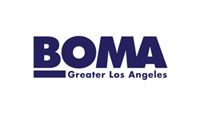When you’re negotiating a commercial lease in Los Angeles, one term that’s bound to pop up is the Tenant Improvement Allowance—or TIA. It sounds fancy, and it sort of is: it’s essentially your landlord offering to foot part of the bill for customizing the space to your needs. Whether you’re opening a retail boutique, launching a sleek new office, or upgrading a restaurant, TIAs can be a make-or-break factor in your lease negotiations. Let’s break down what they are, how they work, and how to make sure you don’t leave money on the table.
What Exactly Is a TIA?
In the simplest terms, a Tenant Improvement Allowance is the amount of money your landlord agrees to contribute toward modifying the leased space. It could cover new flooring, upgraded lighting, fresh paint, built-out offices—basically, anything that makes the space functional and on-brand for your business.
Typically, TIAs are expressed as a dollar amount per rentable square foot. For example, if you lease 2,000 square feet and the landlord offers $40 per square foot, that’s an $80,000 allowance to get your space ready. Pretty sweet—until you realize how quickly commercial build-out costs can add up in LA.
Who Pays What (and How)
Here’s the catch: the allowance is not a blank check. You’ll usually pay for improvements upfront and then get reimbursed by the landlord after providing receipts, lien waivers, and proof the work was done. Some landlords may pay vendors directly, but reimbursement is more common.
Also, TIAs usually have a cap. If your renovation costs exceed the allowance, you’re covering the difference. And if you come in under budget, you don’t get to pocket the leftover funds. So be strategic: get solid bids from contractors and plan your improvements carefully.
Why Landlords Offer TIAs
Landlords aren’t doing this out of the kindness of their hearts. They know that offering a TIA makes their property more competitive in LA’s high-stakes commercial market. A well-finished space attracts quality tenants who are likely to stick around for the long haul.
But be aware: landlords often factor the cost of the TIA into your rent. In other words, you may be paying for it indirectly through slightly higher rent over the life of the lease. That’s not necessarily a bad thing—it just means you should look at the whole financial picture, not just the upfront perks.
💼 Want help structuring a lease that benefits both sides? Get a free quote from Crown Commercial Property Management and let us guide you through the TIA negotiation process from start to finish.
Negotiation Tips to Maximize Your TIA
Here’s where things get interesting. A TIA is negotiable—often more negotiable than base rent. If you have strong financials, a long-term lease, or you’re taking a large space, you have leverage.
Ask for a higher allowance, or negotiate for the landlord to deliver the space in “vanilla shell” condition (basic floors, walls, ceiling, HVAC), which reduces your upfront build-out costs. And always pin down the details in writing: scope of work, approval process, disbursement method, and deadlines. Surprises are great at birthday parties—not in lease agreements.
For more strategies, see our guides on negotiating commercial leases, planning property improvements, and increasing long-term property value.
Don’t Forget the Hidden Costs
Even if your landlord covers part of the improvements, remember there are costs TIAs won’t usually cover: design fees, furniture, IT wiring, permits, or project management fees. Those can add up fast.
Also, watch out for deadlines. Many allowances come with a “use it or lose it” clause requiring you to complete work within a certain timeframe (often within the first 6–12 months of the lease). Miss the window, and the funds vanish.
Bottom Line: Plan Smart and Negotiate Hard
Tenant Improvement Allowances can be an incredible tool to launch your business in Los Angeles without draining your cash reserves—if you understand how they work. Approach TIAs with a clear plan, solid cost estimates, and a willingness to negotiate.
📍 Ready to make the most of your next commercial lease? Contact Crown Commercial Property Management for a free quote and let our team help you secure favorable TIAs while managing your property for long-term success.



